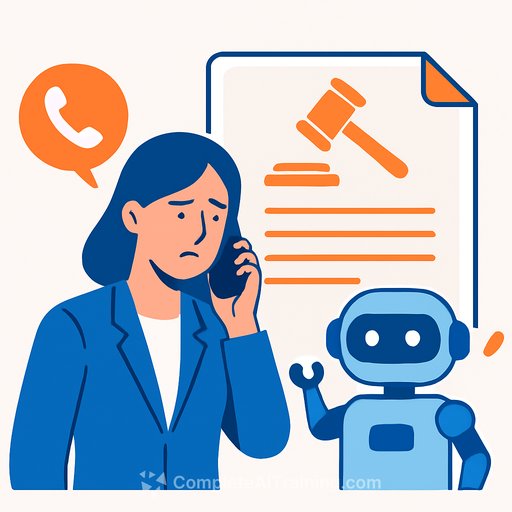How to Get Noticed and Avoid Disappearing in AI Tools Like ChatGPT & Claude
Search engine optimization (SEO) used to be the go-to way for brands to get noticed online, build visibility, and drive traffic. But with more people turning to AI applications like ChatGPT, Claude, or Perplexity as search tools instead of traditional engines, the game has changed. Businesses now need new strategies to show up in AI-driven results.
Unlike traditional SEO, which focuses on keywords and backlinks, AI optimization requires content that matches the way AI understands language — context, intent, and natural conversation. AI search tools provide direct answers and conversational follow-ups, making user experience more interactive and efficient.
Is Traditional SEO Dead?
Not at all. SEO isn’t going away but it must evolve. AI search changes how people look for information, but key SEO elements like user experience, authoritative content, and technical optimization remain essential. The best approach is a dual strategy that combines AI-focused content with traditional SEO fundamentals.
For perspective, as of 2025, AI assistants like ChatGPT have about 400 million weekly active users. However, Google still processes approximately 13.7 billion daily searches, holding over 90% of the global search market. So, while AI tools are gaining traction, traditional search engines continue to dominate traffic sources.
Optimizing Content for AI Discovery
AI-driven search values clarity and context. It prefers content that delivers precise answers and anticipates follow-up questions. Here’s how to adapt your content:
- Expand FAQ sections and use concise summaries. AI can pull relevant info faster from well-organized FAQs.
- Implement structured data such as FAQPage and HowTo schemas to help AI systems understand your content’s structure.
- Review and rewrite content in a conversational tone that aligns with how people ask questions now. For example, shift from keyword fragments like “Best hosting WordPress” to full questions like “Which is the best hosting provider for WordPress?”
- Focus on user intent, not just keywords. If users want “How to choose the best barbeque grill,” provide a detailed step-by-step guide rather than broad info.
- Use heading tags (H2, H3) effectively, especially for questions, and ensure answers under those headings are clear and direct.
- Ensure fast page loading times. AI crawlers may skip slow pages, so reliable and speedy hosting matters.
- Build strong E-E-A-T (Experience, Expertise, Authoritativeness, Trustworthiness). AI tools prioritize content from credible, expert sources.
Which AI Platforms Should You Focus On?
Target AI platforms relevant to your audience and industry. Google’s AI Overviews and Bing’s AI-powered search remain crucial for broad reach. Meanwhile, ChatGPT, Perplexity, and Claude shape conversational discovery.
Google’s AI Mode, for example, doesn’t just list links—it offers direct answers and suggests follow-up questions, making search feel more like a conversation. Optimizing content to fit these conversational AI formats means creating structured, authoritative, and easy-to-digest information.
Leverage Hosting and Marketing Tools
Good hosting isn’t just about uptime. Fast, secure, and well-optimized sites help ensure AI crawlers can access and interpret your content properly. Managed WordPress hosting platforms can provide this solid foundation.
AI-driven traffic often converts better because users come with clearer intent. When AI tools highlight your brand as a trusted source, visitors are more likely to engage and take action.
AI-powered marketing tools can streamline optimization by:
- Automating keyword research (including traditional SEO volumes)
- Predicting search intent
- Grouping keywords by funnel stage (TOFU/MOFU/BOFU)
- Suggesting semantic keyword clusters
- Improving content creation and briefs
- Enhancing readability and flow
- Recommending internal links
- Offering real-time trend insights
- Performing competitor analysis
These tools work best when paired with human expertise. A combined approach ensures your content strategy covers both AI and traditional SEO effectively.
Preparing for the Future
The AI search landscape changes fast. Test your queries across different AI models to check how your content appears. Adjust where needed. Stay updated by following AI research hubs, developer news from groups like Anthropic and OpenAI, and industry resources such as Search Engine Journal.
Develop partnerships with SEO and AI experts to keep your strategy agile and effective.
Ultimately, success means adopting a dual-optimization approach. This involves crafting content that is conversational, context-rich, and intent-focused for AI tools, while also maintaining SEO basics like keyword targeting, internal linking, and structured data.
Emerging AI models, such as DeepSeek, which combine real-time data with AI generation, require content that goes beyond keywords—focusing on freshness, semantic depth, and true user intent.
Marketers who start auditing and adapting their content for AI search now will maintain visibility and authority today while positioning themselves for tomorrow’s opportunities.
Your membership also unlocks:





